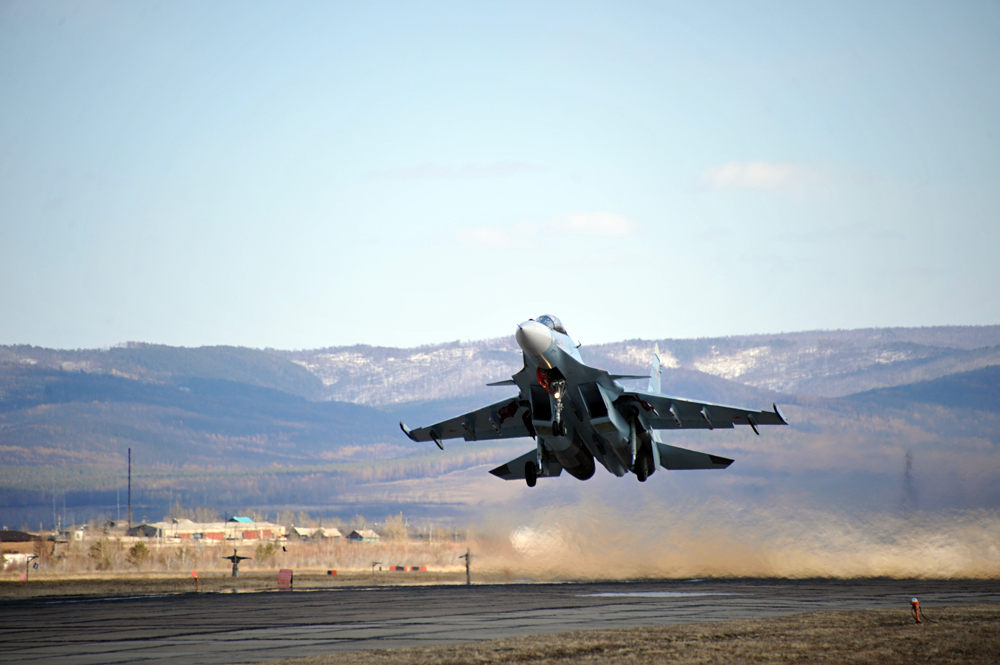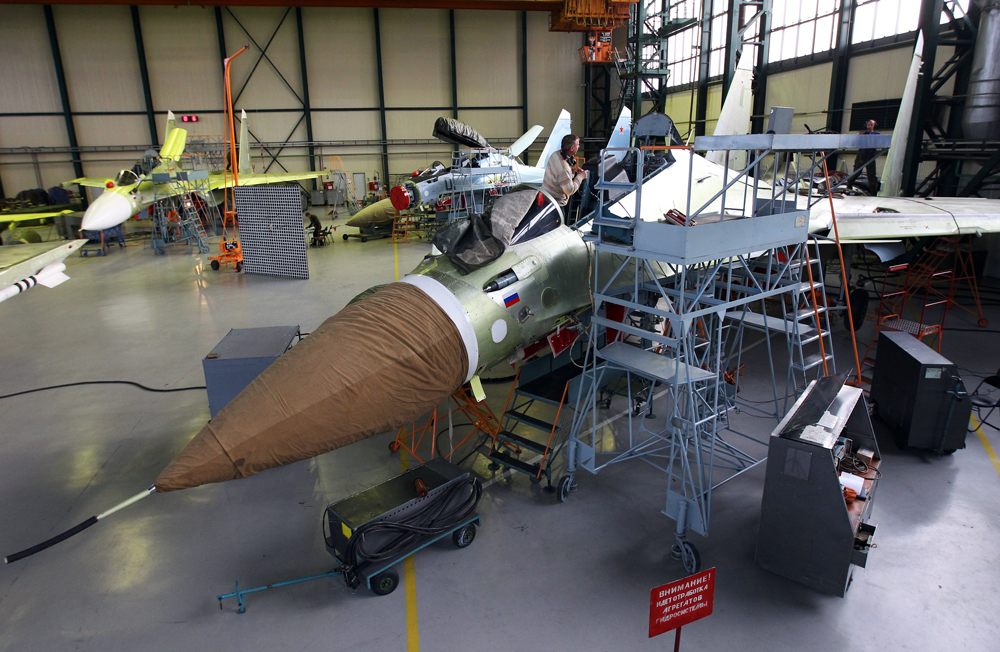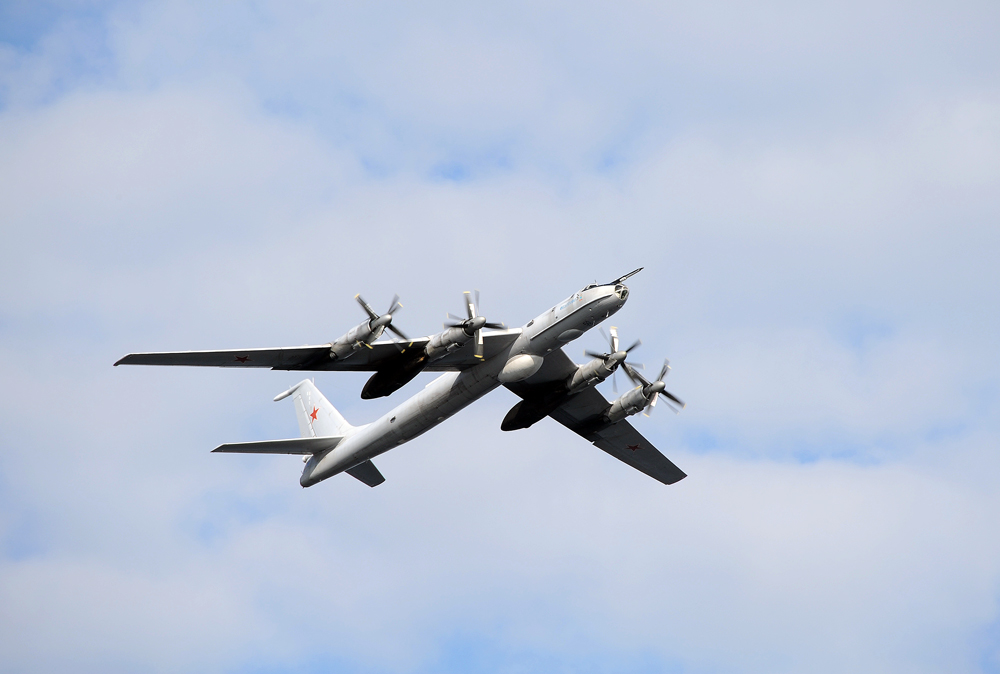Russian aircraft sales boosted by Syrian campaign

A Su-30SM fighter jet on a training mission in Zabaykalsky Territory.
Evgeny Yepanchintsev/RIA NovostiOperations of the Russian Aerospace Defense forces in Syria from September 2015 to March 2016 has perhaps become the most profitable demonstration of the country's armed forces in Russia's entire post-Soviet history. After the operation ended in March 2016, Russian President Vladimir Putin said that exports of Russian arms were exceeding expectations.
Despite the secretive nature of the military industry complex, the disclosed figures give an indication that the potential profit of the Russian budget from weapons sales to foreign markets will be able to easily cover the costs of the military operations. While Russia spent $500 million on its operations in Syria, the export of military goods from Russia amounted to $15.2 billion at the end of 2015.
According to Russia's state-run arms export agency, Rosoboronexport, the sales of Russian aircraft account for almost half (47 percent) of the country's military exports. The involvement of Russian Su-34 and Su-24M bombers, the newer Su-30CM and Su-35s fighter jets, as well as Mi-24N and Ka-52 helicopters have spurred interest not only from the major arms importing countries with whom Russia has traded with before, but also from new buyers in the Middle East.
New talks and buyers
As a source in Russia's military-industrial complex told RBTH, all new negotiations on the equipment used in the Syrian campaign are classified as "top secret" and cannot be disclosed.
"From leaked information, we can talk about the beginning of negotiations with Algeria and Egypt on the supply of 4++ generation Su-35 fighters," the source told RBTH. However, the price and quantity of the aircraft have not been disclosed since it is not known whether the negotiators will come to a mutually beneficial agreement.
“The contracts that Russia concluded as of December 2015 were developed before the operation in Syria," Viktor Litovkin, a military analyst with the TASS Russian news agency, told RBTH. "These agreements spelled out not only the delivery of the aircraft themselves, but also their components.”
According to Litovkin, negotiations are underway on how equipment maintenance will be handled, either in Russia or by building plants in the buyer's country. The sides are also discussing whether the training of pilots and technicians to work on the aircraft should be done at Russian schools, the expert added.
Among these contracts the largest is a Russian-Chinese deal worth about $2 billion. In November 2015, the Chinese signed a contract for the purchase of 24 Su-35 multifunctional fighters and became the first foreign customer to purchase these Russian aircraft. Also before the end of 2016, Moscow will supply the remaining batch of six MiG-29K naval fighters to India, two MiG-29s to Egypt and a batch of Su-30MKAs to Algeria.
 Multi-purpose Su-30CM fighter jet in the assembly shop at the Irkutsk aviation plant - a branch of the JSC Irkut Scientific and Production Corporation. Source: Sergey Mamontov/RIA Novosti
Multi-purpose Su-30CM fighter jet in the assembly shop at the Irkutsk aviation plant - a branch of the JSC Irkut Scientific and Production Corporation. Source: Sergey Mamontov/RIA Novosti
Southeast Asia is also interested. In April 2016 the Royal Thai Armed Forces signed a contract for the purchase of a second batch of Russian helicopters, including two Mi-17V-5s.
Also in early April a high-ranking delegation from Jakarta visited Moscow. Talks were held about Moscow supplying 10 Su-35C planes to the Indonesian armed forces.
"You always have to keep in mind that by buying weapons, the country buys not only the hardware, but also some political dividends," says Vadim Kozyulin, a professor at the Academy of Military Sciences. According to him, for this reason some buyers never turn to Moscow no matter how much they are interested in Russian weapons because they need the support, for example, of the U.S. in one issue or another.
Opaque pricing
Following the ruble’s 50 percent drop against the dollar and the euro in 2014, the Russian national currency continues to remain weak, which gives Russian exporters a strong competitive advantage in world markets. However, the dumping of weapons is not being considered. According to Konstantin Makiyenko, deputy director at the Center for the Analysis of Strategies and Technologies, Rosoboronexport will not reduce the dollar price of military equipment.
"This is a very special commodity," Makiyenko said. "Its price is minimally affected by economic factors and much more by political and military ones." However, he added that due to foreign currency exchange rates, the profitability of domestic enterprises for Russia's budget increases dramatically.
Read more: Should the world worry about Russia’s reformed military?
Subscribe to get the hand picked best stories every week
All rights reserved by Rossiyskaya Gazeta.
Subscribe
to our newsletter!
Get the week's best stories straight to your inbox
